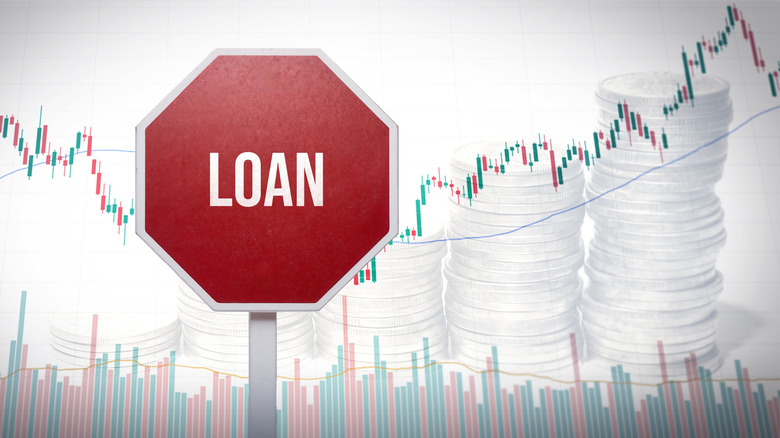The Reason Your Credit Card Interest Rates May Have Just Gone Up
Credit cards are big business in the United States (as well as globally). Americans have an average of about four active credit cards in their wallets, totaling hundreds of millions of credit accounts across the country. Signing up for credit is often relatively easy, and many people utilize credit card offers to effectively buy now and pay later – often with a zero-interest period attached to sweeten the deal.
But credit cards come with plenty of trouble hiding under the surface. For one thing, many store credit offers don't actually feature a zero-interest repayment term, but rather offer zero-interest adjustments through a "deferred interest" offer if you pay the balance off in full during the introductory period. If you fail to eliminate the balance, the card issuer will whack you with the full weight of the entire accrued-yet-withheld interest cost. Whether you're a store credit user or a standard credit card purchaser looking to accumulate rewards points, you're likely to have seen a concerning change in recent months. Many consumers across the credit spectrum have seen their interest rates for standard purchases on new accounts rising over the last year, and there's a not so subtle reason for why this is happening.
Credit card issuers braced for a looming change to their revenue stream
Near the end of 2023, the Consumer Finance Protection Bureau rolled out new guidance on how credit issuers can charge fees to their users. Specifically, the CFPB targeted late fees, seeking to introduce a rule that would cap these penalties at $8 per incident (the average now is $32). This new rule would have come into effect in May of 2024, but the U.S. Chamber of Commerce sued to halt the change in March. A federal judge granted a request to halt the alteration as the case makes its way through the legal challenge process, and experts suggest that it's unlikely to ever come into effect.
Credit card issuers argued that with lower penalties for missing a payment or paying late, more people would opt to go down this route (even though non-fee consequences can be steep on their own). The result would likely be a weakened earnings report for card issuers, and a more expensive borrowing landscape for everyone to make up for that shortfall. In response, card companies have been slowly increasing interest rates on newly opened accounts in the lead-up to this rule's prospective effective date. Yet now that the rule change looks doomed to fail, consumers shouldn't be holding their breath waiting for a subsequent reduction in interest costs. The biggest culprits here are found in store-specific credit cards issued by the likes of Synchrony and Bread, but Citigroup and Barclays are also jacking up rates at a significant pace, so watch out for these names as you shop around for new credit products.
Protecting yourself from more expensive lending products
Most importantly, consumers shouldn't ditch their older credit card accounts unless there's a compelling reason to cut ties. The average age of your accounts — as well as the actual age of your oldest credit account — plays a key role in the calculation of your credit score. This means that closing an old account that might sport an interest rate lower than the going average of new cards today might reduce your credit score, making offers on new accounts potentially saddled with doubly-inflated APR figures.
It's also important to avoid missing a payment on any of your credit card accounts. Many cardholder agreements allow a card issuer to raise your APR to a penalty level if you are late or miss a payment. This could mean shifting a previously low interest rate to a wildly inflated one in line with today's ballooned figures. Naturally, you'll also want to seriously consider your options when opening a new account. Many will feature heightened APRs that make them far less attractive to users looking to make their money work smarter for them. Moreover, issuers have also targeted monthly fees and other costs, with incremental increases ramping up as well. You may be on the hook for an additional few dollars every month or a heightened annual fee if you establish a new line of credit in the contemporary marketplace.


